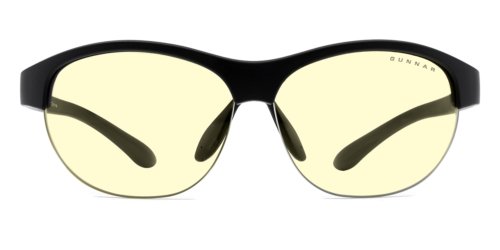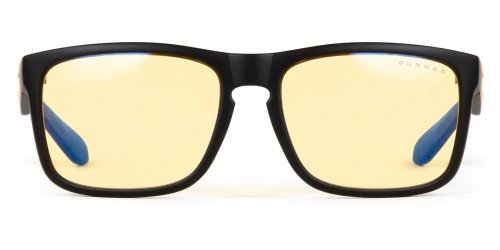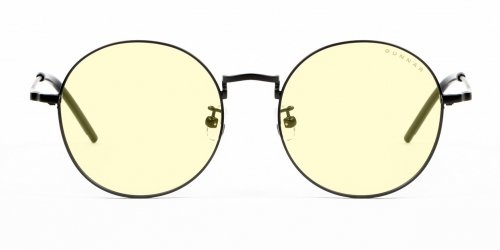In the corporate world, If you don’t execute your job effectively, efficiently, and thoroughly, it’s no secret; there are hundreds of other qualified professionals lined up who can make it happen. Which, begs the question: why work so hard to succeed if you’re only going to cripple yourself the second you clock out for the day?
Most determined employees strive for success and getting ahead. Philosophically speaking, they’re just as committed to reaching their goals as any professional athlete. Though for many, maybe even most, a healthy eating style, enough exercise and most importantly, getting the 7-9 hours of actual sleep so essential to maintaining higher levels of energy, excellent health and performance aren’t priorities. Among other aspects of their lifestyle, these errors in judgement, even more than body composition, negatively affects their functional abilities and focus.
If though, business professionals approached their game, thinking and living more like an athlete, they would perform like corporate “athletes” and excel way beyond their present capabilities.
When it comes to professional athletes, being in tip-top shape is of the utmost importance. And it’s not just physical, but mental as well. For each of them, it is vital that they live with optimal energy levels, bring peak energy when they need it most and avoid crashing, especially when their game is on.
Yes, these million-dollar-machines spend an exorbitant amount of time in training, but it’s all so they can perform at desired levels when it matters most. Don’t we all want a similar result? To know we can bring it because we’ve got it; and, to look and feel it?
For average Americans, though, the divide between the healthy, performance lifestyle of an athlete and their lifestyle is immense. Frankly, given how well-tuned we know athletes are and the noticeable impact it has on their performance, it’s baffling to comprehend why more people don’t step up their game. Learning how to optimize the way you live for the admired levels of performance we see our icons deliver week in and week out throughout the year, even if you’re not into sports or a fitness enthusiast makes a world of difference.
In our daily routines, no matter how mundane, we don’t have to reach for that third cup of coffee or overpriced energy drink to make it through because there are things we can all do to have athletic-like energy and performance to maximize our work performance.
Believe it or not, having that energy, starts with light, and your eyes.

IT STARTS WITH THE EYES
Our bodies all function throughout the day based upon on circadian rhythm. Simply put, your circadian rhythm is your body clock which is telling you when to wake up, and when to get tired and go to bed. There are many factors which can positively and negatively impact your circadian rhythm. Knowing more about these factors might get a bit technical, but they’re important to your health. Since your rhythm runs your physiology, it feeds off of four external factors which affect its ability: light, hormones, temperature, and food. Let’s start with light.
“Light entrains and effects all of [our] physiology. The retina mediates processes via the retinohypothalamic tract which facilitates autonomic responses and hormonal communication. Literally every cell depends on the rhythm in order to function in their own circadian manner, so it requires little imagination to fathom the extent of dysregulation that can occur with inappropriate phase shifting as a result of prolonged exposure to irritating wavelengths of light. Blue light has somewhat of a paradoxical reputation, with some research praising it for melatonin suppression and arousal promoting effects, while others demonize it due to its phototoxicity and insomniogenic attributes.” —Caleb Greer, BSN, RN, Revive Treatment Centers
In other words, over exposure to blue light will prevent your circadian rhythm from telling your body it’s time to get tired. Yes, natural blue light in the morning is an important thing to soak in so you can become more alert and ready for your day, but sustained exposure from artificial sources only serves to interrupt your body clock in a negative way.

Greer further states that there needs to be an understanding of what is meant by “blue light” as there is a nice chunk of the visible light spectrum devoted to it, from 380 to 500nm [nanometers]. As literature suggests, blue light (and some of the UV spectrum) is absolutely necessary for proper function. Photoreceptors [in your eyes] capture photons from rays and utilize the energy to induce a cascade that results in an action, from color vision and dim-light vision to photoentrainment and hormonal periodicity. However, blue light is never on its own in the solar spectrum and it is vastly outshined by the amount of red and infrared light radiated alongside it. Left alone, blue light has been shown to induce photochemical damage across the retina and macula due to its high-energy photons causing oxidative stress within the [light-sensitive proteins found in photoreceptor cells]. Oxidative stress results in the production of reactive molecular species that damage cell structure and energy flux.
Two issues now stand regarding artificial light: one is the frequency of said light, and two is the duration of exposure to it. Let’s be clear, natural blue light is not the enemy. However, artificial blue light borders on becoming one because of its frequency, and the lack of red light which assists with healing and energy production. The incoming barrage of artificial blue light becomes too great for our retinas to handle. What happens to the eye? According to Caleb, the healing process in the eye decreases which then causes energy transfers within the eye to slow down. This results in circadian rhythms being thrown off track.
“Blue light from your computers can contribute to digital eye strain and long-term health issues.” —Dr. Eric White, O.D.
Dr. White recommends amber tinted lenses while looking at digital screens to prevent this. The two primary properties of amber lenses that make them good at preventing digital eye strain are added visual contrast and the filtering of blue light. Over saturation of blue light decreases our visual acuity, depth perception, and can make focusing difficult. This ultimately makes our eyes work harder, resulting in greater eye fatigue and headaches. In the long-term, there are studies and literature stating blue light can cause cataracts and macular degeneration.
In a recent study by the Midwestern University and Arizona College of Optometry, it has been known for nearly 40 years that blue light exposure can damage retinal pigment epithelium (RPE) cells. RPE cells are the pigmented protective layer just outside the neurosensory retina that nourishes retinal visual cells, and helps with light absorption. These cells are extremely important because they improve the overall quality of the optical system, and they absorb the scattered light and diminish the photo-oxidative stress on the retina. This study showed that exposure to blue light reduced senescence associated beta-galactosidase (SABG) staining after one week of exposure. After three weeks of exposure, defects began to appear in the RPE layer and cell size was reduced. By four weeks of exposure to blue light, the RPE layer was significantly disrupted, and there was a 30% reduction in cell numbers and viability. These results suggest that exposure to levels of blue light that might occur in a normal environmental setting can damage important RPE cells.

THE NEED FOR QUALITY SLEEP
One of the greatest arenas that the relationship between exposure to irritating, artificial blue light and our circadian rhythm is so clinically relevant is sleep, where hormonal modulators depend on proper lighting and circadian synchrony. The job of the blue frequency is to initiate a “daytime” command which assists with bringing along the behaviors needed to operate and function during the day. What happens when we expose our eyes to this during evening hours? Well, the brain is told that it is still daytime and that it needs to adapt. The consequences of poor or inadequate sleep are no mystery. However, it is important to realize that the cause of much of the population’s disturbed sleep may be prolonged exposure to this environmental cue.
Jeff Zeilstra, of Fatigue Science, explained that they understand, from extensive work with elite athletes and military operators, that consistent, good quality sleep is extremely important to human performance, both cognitively and physiologically. Over the past several years, performance coaches and researchers have also learned that tissue growth and repair of all populations occurs during deep sleep, and that it’s a time for metabolic rebalancing. For instance, when athletes are sleep deprived, the production of cortisol—the hormone linked to unhealthy stress—increases as well as bio-markers such as inflammation. Testosterone and growth hormone levels decrease while at the same time, the production of glycogen and carbohydrates—essential for energy during physical activity—decreases as well. As well, we know that keeping consistent sleep/wake patterns will keep the body’s circadian rhythm in check in order to help maximize daytime alertness and energy.

“Deep sleep—the kind that occurs in later stages of non-REM and REM sleep—is vital for restoring brain cells and neural pathways, ridding the brain of toxins, and critical for short and long term cognitive health.” —Jeff Zeilstra, Fatigue Science Account Executive
Thomas Delauer, celebrity trainer and health author, tells us that to maintain your body’s ideal health and to get the restorative sleep necessary to drive daily top performance, its best to understand how your circadian rhythms work and how they correlate with your body’s hormones. It is also important to understand how artificial blue light from digital devices can interrupt your circadian rhythms and hormone production.
“Your natural circadian rhythm takes its cues from your environment and can generally be considered the body’s central clock. Essentially the brain sees environmental cues such as it getting dark out or it getting later in the day, and it then sends messages to our peripheral clock. Your peripheral clock is your body’s cells, organs, and the body itself. These messages coordinate your body’s sleep cycles, daily routines, and they make physical adjustments based on messages from your central clock and peripheral clock.” —Thomas Delauer, Trainer, Author

Issues can arise when the body’s central clock and the environment do not match up causing hormone production to be disrupted. Artificial blue light from computers, phones, and tablets trick the body into thinking its daytime when it is nighttime, and prevents the body from its normal hormone production. In the short-term this will affect your deep restorative sleep, anxiety levels, depression, metabolism, libido, and overall daily performance. In the long-term, this can cause long-term bouts of depression and anxiety, chronic metabolism issues, as well as increasing the body’s chances of injury and disease.
According to a recent article on WebMD, there’s a growing sense that lack of good quality, natural circadian rhythm sleep could be taking a serious toll on our health. Frank Scheer, Ph.D., a neuroscientist at Harvard Medical School and Brigham and Women’s Hospital in Boston, states that because circadian rhythm affects how our bodies function, disrupting it can throw the system out of whack. This includes our cardiovascular system, metabolism, digestion, immune system, and hormonal balance. This sort of disruption can have serious consequences on our health.
REACHING NEW HEIGHTS IN PRODUCTIVITY AND PERFORMANCE
“As much as our community is driven by a fitness lifestyle, most of us work in careers that require significant parts of our days to be spent in front of computer screens. This constant exposure to blue light not only causes disruption of our sleep patterns, but can cause a threat to our eye and body’s health. Here at HYLETE headquarters, we supply GUNNAR’s glasses to our team to optimize everyone’s health and performance.” —Ron Wilson, CEO, HYLETE, Inc.

In order to maintain your maximum performance levels, Thomas Delauer explained that you need to implement a few things to help your hormones cycle normally and prevent this imbalance. First, it is important to surround yourself with bright light in the morning to help your body shut off your overnight melatonin production to get your day started. Second, it’s important to minimize your exposure to blue light in the afternoons and evenings to allow your body to begin shutting down, and begin production of melatonin. Blocking out blue light, especially in the afternoons and evenings, is very important to maintaining natural circadian rhythms so the body gets solid restful sleep cycles and productive daily wake cycles.
According to Greer, although not an effect of blue light directly, another clinical diagnosis that is relevant to the overutilization of digital devices primarily emitting blue light is digital eye strain. Fatigue of the extraocular eye muscles (EOM) can lead to intense symptomatology in addition to that of the metabolic cascade described earlier. All muscles have proprioceptors that give continuous information to the brain regarding position and tension, and the change in those parameters. When a muscle is chronically lengthened or shortened, the proprioceptors adapt and this results in tone that is abnormal, and dysfunctional. This process occurs within the EOM as well, and due to the poor posturing associated with the use of computers and mobile devices, the EOM are subject to vertical, horizontal, and torsional stress. Our eyes and visual systems are built to explore the visual environment, track objects of interest, scan for new objects of interest, and also to search and react to possible threats to safety—all of which occur beyond the measurements of any screen. With blue light causing physical damage to photoreceptors, contrast sensitivity can also take a significant hit which will reduce visual clarity, as well as increase cortical energy expenditure as it devotes more effort to attain accurate perception.
WHAT NOW?
A lot of what you just read is detailed science and medical information provided to us by tenured experts in their respective fields. To summarize, being and living at your best doesn’t have to be a difficult chore, nor does it require a lot of time. Simple things like eating right, regular exercise, limiting blue light during the afternoons and evenings, and protecting your eyes throughout the day will all contribute to an increase in quality sleep and daytime energy. We may not all reach professional athlete levels of fitness and health, but we can do a lot to benefit our lifestyles by following the advice of everyone who has contributed to this article.

On a daily basis, our eyes and bodies don’t just need to keep up, but perform at their best, just like athletes, so we can compete and excel as a person and professional. Tie all of this into blue light exposure, and the vicious cycle of bad sleep —> sluggish performance —> slow metabolism —> need for artificial stimulants/caffeine —> work stress —> bad sleep never ends. To be at your best and ready to compete at a professional level, it is critical to break this endless cycle. Of course, the right nutrition and exercise help you maintain body balance, but the critical element always comes back to limiting your exposure to artificial blue light, and there are many ways in which you can protect yourself.

Let’s break everything you’ve just read down into a simple flow. Blue light can affect your body’s circadian rhythm as well as your overall health and wellness. Your body’s physiology and functionality get its cues from your environment which dictate how well your daily routine is going to go. Your circadian rhythm is your body’s clock that regulates your overall physiology. Over-exposure to blue light absolutely disrupts hormonal and chemical communication in the body and with your sleep pattern. Blue light from a digital device can contribute to digital eye strain and long-term health issues. Blue light exposure can damage the RPE cells that protect your retina from long-term damage. Brain stimulation caused by blue light prevents the body from getting deep restorative sleep. Deep sleep is vital for restoring brain cells, repairing the body, and ridding the brain of toxins. Without deep sleep, you disrupt the repair process for short and long-term cognitive health. Lack of sleep and disruption of sleep will increase your risk of other serious diseases. It is all, therefore, important to limit the amount of blue light you receive from an artificial source especially in the afternoon and evening.
Sources:
Thomas Delauer, Celebrity Trainer, Health Author
Caleb Greer, BSN, RN, Revive Treatment Centers
Dr. Frank Scheer, Ph.D., Neuroscientist, Harvard Medical School, Brigham and Women’s Hospital
Ron Wilson, CEO, HYLETE, Inc.
Dr. Eric White, O.D.
Dr. Michael Kozlowski, Ph.D., O.D., FAAO, Midwestern University
Jeff Zeilstra, Fatigue Science
John Allen Mollenhauer, Performance Lifestyle® Inc.








